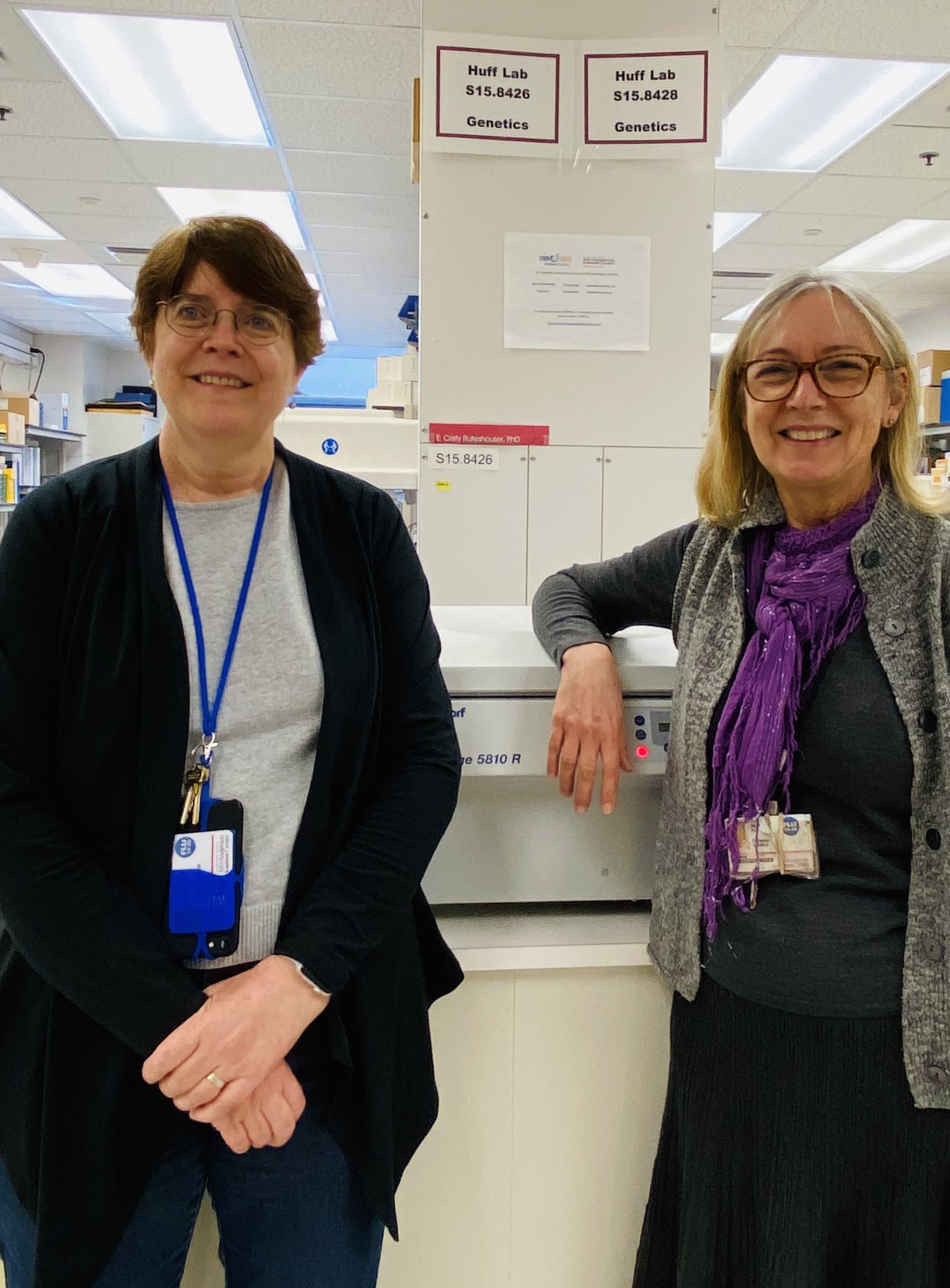
Vicki Huff (right) and Cristy Ruteshouser, PhD, in the Huff Lab
August 2020
The Pablove Foundation announced it has awarded a “Powered by Pablove Grant” to Vicki Huff, scientific researcher at the University of Texas, MD Anderson Cancer Center. This grant award is of special interest to IWSA families because 50 percent of individuals with WAGR syndrome develop Wilms tumor. Pablove states: As a scientific researcher, Dr Huff’s work is focused on tumors of the kidneys called Wilms tumor. There is a genetic predisposition [WAGR syndrome] tied to Wilms tumor and in this “Powered by Pablove Grant” research project, Dr Huff is studying an agent she hopes will counter the effects of that genetic predisposition to prevent growth of Wilms tumor in the first place.
Dr Huff is a Professor in the University of Texas Department of Genetics and is Director of the MD Anderson Cancer Center’s Advanced Technology Genomics Core. “A significant portion of childhood cancers are associated with underlying genetic predisposition. The strategy for managing this cancer risk in children is frequent screening for early detection. However, it would be greatly preferable to prevent cancer development in the first place,” explains Dr Huff. “We have identified an agent that counters the effects of a fetal growth factor, IGF2, that is frequently abnormally expressed in childhood cancers...we will test the ability of this compound to reduce cancer development in the Wt1-IGF2 mouse model WT. Tumors from these mice carry the same genetic alterations...observed in tumors from WAGR patients, thereby making it a biologically relevant model for assessing this potential chemopreventive for WT.”
If this animal study is positive, the next step could be a clinical trial in children with WAGR syndrome, and potentially, other cancer-predisposed children. The ability to prevent cancer could eliminate the long-term effects of chemotherapy and greatly improve the quality of life for cancer predisposed children who often have other health challenges. Initial work on this project began in 2019 and was funded by the family foundation, WAGR Warriors. Developing the mouse cohort was among the project’s first steps and with the arrival of the COVID-19 pandemic, progress was delayed but not halted.
This exciting project, which could have dramatic impact on the WAGR syndrome patient community, is a direct result of collaborations between the IWSA, the Wilms tumor research community, and other stakeholders interested in Wilms tumor and cancer predisposition syndromes. Dr Huff recently sent a message to the IWSA, “Thank you for your encouragement and help. I’m sure that your [the IWSA] letter of support and the information you provided about statistical methods for analyzing clinical trials with small numbers of participants were important factors in the success of the application.”
This recent research award is encouraging and provides reinforcement that patient group support and involvement in the research process is not only important but can also have significant effects on grant funding decisions.
Sign up for News & Events
COPYRIGHT© 2025 IWSA / International WAGR Syndrome Association
